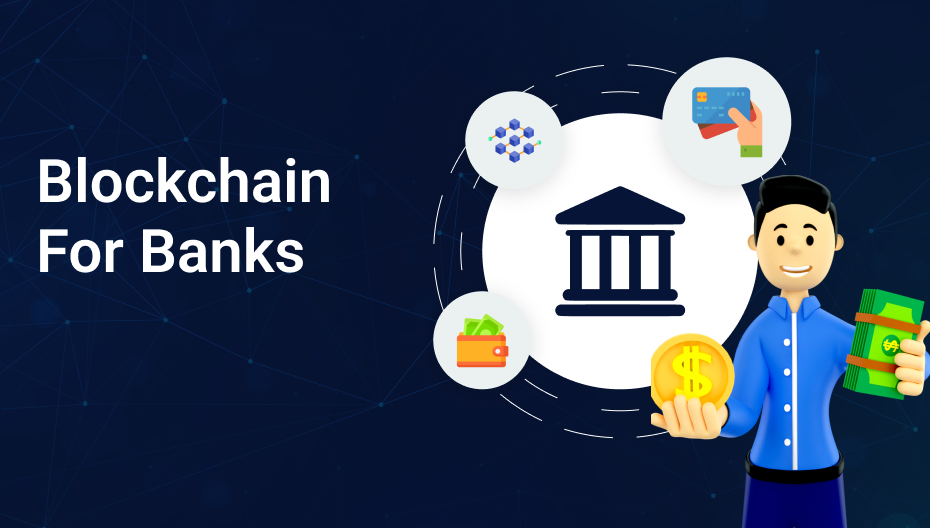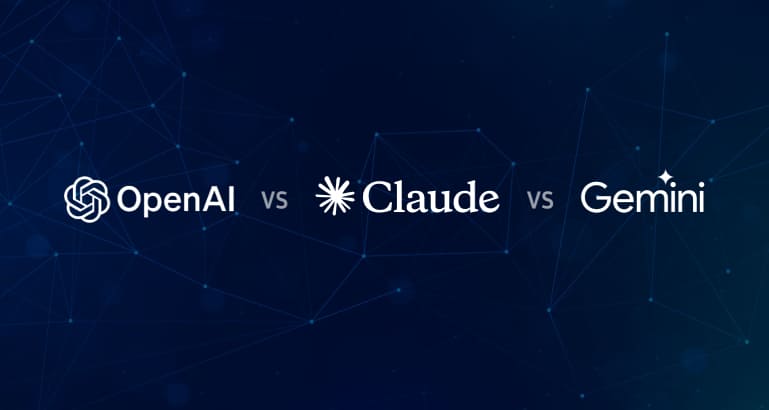Blockchain For Banks
Introduction
A decentralized, digital, cryptographic ledger where data is recorded and stored in chronological order in real-time is called a blockchain network. As the world moves towards digitalization, the security of data and information is at great risk. Such risks and threats are no more a problem to the world with the emergence of blockchain technology. Blockchain technology is not only secure but is filled with other attributes like decentralized ownership, immutability, etc. It offers an opportunity to enhance trust, transparency, and ownership to every stakeholder associated with it.
Blockchain Behind Banks- A New Opportunity For The World Of Finance
Industries have just started to explore the adventure of blockchain, there is much more to experience. Blockchain has a huge scope in banking and other sectors as well. As a matter of fact, various banks and financial institutions have already started using blockchain for their multiple uses. They are-
| Platforms | Partcipating Banks/Financial Institutions | Blockchain Network |
|---|---|---|
| Komgo (2019) | ABN-AMRO, BNP Paribas, Credit Agricole, Citi, Gunvor, ING, Koch Supply & Trading, Macquarie, Mercuria, MUFG Bank, Natixis, Rabobank, SGS, Shell, Société Générale | ConsenSys Quorum |
| We.Trade (2018) | CaixaBank, Deutsche Bank, Erste Group, HSBC, KBC, Nordea, Rabobank, Santander, Société Générale, UBS and UniCredit | IBM Blockchain Platform |
| Contour (2020) | Bangkok Bank, BNP Paribas, CTBC Holding, HSBC, ING, SEB, and Standard Chartered, Citi, Vietnam’s HD Bank, DBS Bank, SMBC, and Standard Bank | R3 Corda Platform |
| Morcopolo (2019) | BNP Paribas, Commerzbank, ING, LBBW, Anglo-Gulf Trade Bank, Standard Chartered Bank, Natixis, Bangkok Bank, SMBC, Danske Bank, NatWest, DNB, OP Financial Group, Alfa-Bank, Bradesco, BayernLB, Helaba, S-Servicepartner, Raiffeisen Bank International, Standard Bank, Credit Agricole and National Bank of Fujairah. | R3 Corda Platform |
Different Use-Cases Of Blockchain in Banks and Financial Institutions
| Use-Cases | Descriptions |
|---|---|
| Trade Finance | Issuance of letter of credit and bank guarantee |
| Customer feedback | Customer complaints and Bank regulation reports |
| Document management | Transfer of a document with security and automatically (smart contracts) |
| Payments | Management of payments at different POS. Example- ATM, e-commerce, etc. |
| Lending | Management of loans and mortgages |
| Capital Management | Settlement of funds, Administration of funds, dividends, and management of shareholders. |
| Treasury and security | Management of treasury bills, Collateral, equity, Bond, risk, etc. |
Identity Verification
Banks can use blockchain networks for storing proofs of data verification. This will help in sharing complete ownership and control of data with the respective owners. Customers can decide on sharing information with banks or any other financial institution.Trade Finance
All the financial activities are still computed in the traditional manner that increases the time and cost of operations. But, blockchain-backed trade finance can well organize the entire trade finance system where all participants have ownership of their own database and take care of all the transactions. Participants don’t need to keep multiple copies of the documents. One single digital document is enough for every work and participants have the liberty to update it from time to time. Thus, it's accessible and efficient for all participants of the network.In the case of a Letter of Credit, smart contracts and escrow play a significant role for both parties. With the help of a single digital document (which works as a Purchase order and an LC application in a traditional system) stored on a blockchain network, both parties enter the contract. Once the conditions are met exporter will give the goods to the importer. Funds stored in escrow will be released to the exporter when the importer receives the goods. Now, when the trader moves to another bank, the credit report can be extracted from the blockchain network by maintaining the authenticity of the documents.
Payments
Payments are one of the significant use-cases of any centralized/commercial organization. Blockchain assists in faster payment options at different points of sale. Cross-border payments are also faster and cheaper with blockchain technology, where the remittance cost is just 2-3% without any intermediary.Lending
Before offering loans, lenders' credit reports are checked. If a bank uses blockchain technology, all the credit reports are stored on a blockchain network and can be evaluated easily without any third-party action. It requires a lesser cost, faster, and is a more secure process as compared to the traditional lending process.
Technological Implementation Of Blockchain In Banks
Technological implementation of blockchain for the smooth functioning of banks is one of the biggest challenges that need to be addressed first. A two-phase approach can be used to build the ecosystem. The two phases are-
Internal Integration
Firstly, blockchain should be implemented to facilitate the smooth internal functioning of the ecosystem. It includes management of reports, documentation of loans, etc. Then banks can use blockchain for transactions across different branches located in different countries. This global step will also help banks in the management of data. Thus, the data/information/documents will be stored on a blockchain network and it can be easily accessible to all the stakeholders of the bank.External Integration
Once the internal setup is done, banks can now move further for external arrangements. A partnership of a blockchain-backed bank with other banks/financial institutions can be a great idea for sharing information/data.
Conclusion
Permissioned blockchain networks provide benefits in a closed ecosystem along with meeting the requirements of the companies. They come with challenges that can be easily taken care of with a team of experts. So, all you need is to get in touch with Nu10’s experienced professionals and share your ideas.
We are a DeFi and crypto consulting company that has experience working on various kinds of blockchain networks including Hyperledger, Cardano, Avalanche, and much more!
About Author
Dr. Phaneender Aedla
Dr. Phaneender Aedla has over 24 years of experience in handling and managing petabyte-scale data systems. He blends deep technical acumen with strategic vision, and aims to drive intelligent, sustainable innovation through co-creative partnerships that unlock true business value.









